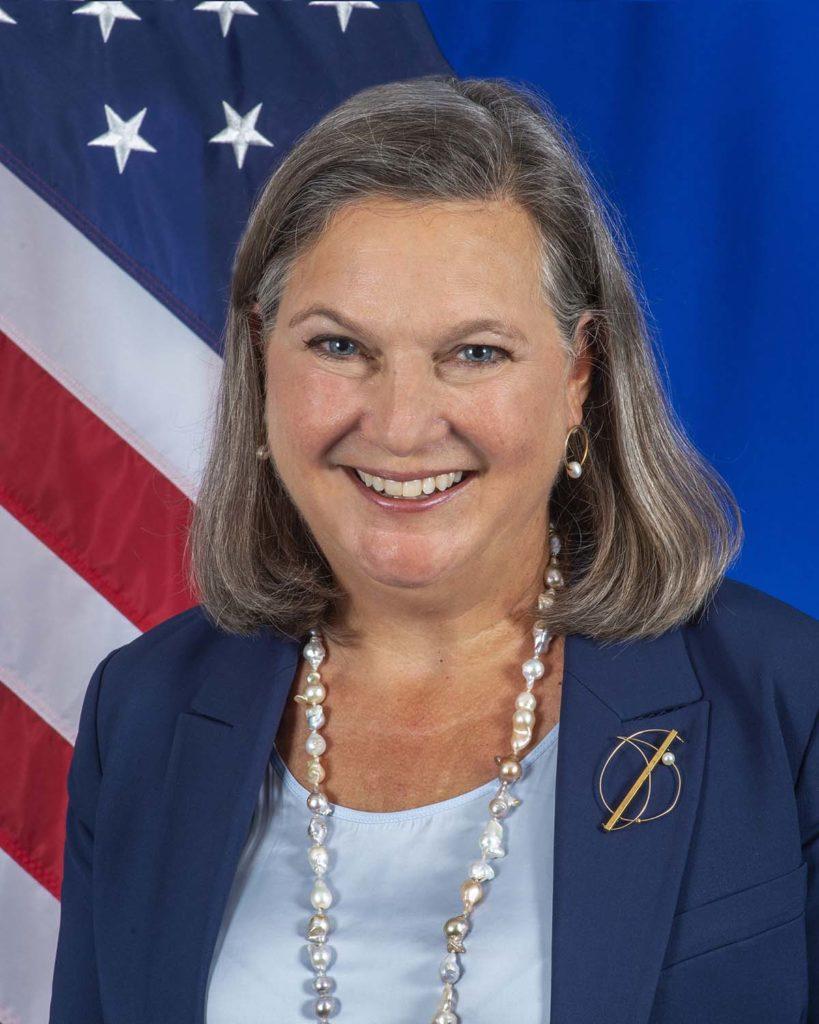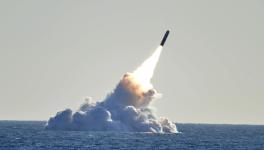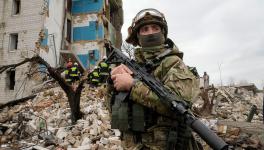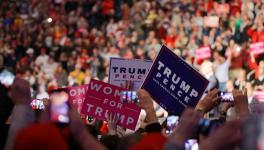Is Ground Beneath Biden’s Russia Policy Shifting?

In a surprise development, US Undersecretary of State for Political Affairs Victoria Nuland has announced retirement from the foreign service.
The resignation of the US Undersecretary for Political Affairs Victoria Nuland, the third highest ranking diplomat in the Biden administration, came as a bolt out of the blue on Monday.
An easy explanation could be that it rankles that she was overlooked for promotion as Deputy Secretary, a job she coveted in 2021 as the Biden presidency began, and instead Kurt Campbell, President Biden’s key advisor on China, recently moved in.
The effusive praise Secretary of State Antony Blinken showered on Nuland, 62, over her premature retirement from the foreign service is usually reserved for funerals.
It is a Cold War legacy that Russia hands in the US foreign service tend to hold strong views on their area of expertise. George Kennan was frequently full of regrets that his espousal of a containment strategy against the Soviet Union, as outlined in his famous 54,00-word ‘Long Telegram’ from the Moscow embassy — followed by a second legendary contribution via an article published in Foreign Affairs under the pseudonym “X” — was completely misunderstood and turned into a militarised program of confrontation.
Already by 1948 Kennan began to be dissatisfied with the diplomatic career and in the more than 50 years he lived after quitting, he was a frequent critic of US foreign policy. A splendid revelatory biography of Kennan recently A Life Between Worlds by Frank Costigliola presents a picture of a man of extraordinary ability and ambition whose idea of containing the Soviet Union ignited the Cold War but who himself spent the next half century trying to extinguish it.
Always prescient, Kennan in the 1990s warned that the eastward expansion of NATO would spur a new Cold War with Russia. In a cable sent in August 1948 as director of policy planning, Kennan addressed the big question that is resonating today: in the case of a Soviet collapse, should the US favour maintaining the territorial integrity of the Soviet empire or strive towards its partition.
Kennan advised that while advocating Ukraine’s independence, the US should be exceptionally careful. He recognised the power of Ukrainian identity and counselled Washington not to oppose an independent Ukraine, but to be extra careful not to be viewed as the power advocating for it, given Russian sensitivities!
To my mind, Victoria Nuland’s decision to throw in the towel as a career diplomat may be in a similar matrix as Kennan’s disillusionment that his advice was ignored by the Truman administration. This needs some explaining.
The general impression of Nuland is of an inveterate ‘hawk’ and Russophobe fired up by neoconservative ideology and American exceptionalism who precipitated the Russian intervention in Ukraine and is largely responsible for fuelling the ongoing war. Of course, there is no denying that Nuland played a key role in the regime change in Kiev 10 years ago.
But what lies buried in the debris and all but forgotten today is that Nuland also promoted the Minsk Agreements as the way out of the impasse in Donbass where explosive violence erupted in 2014 as ethnic Russian separatists with support from Russian hinterland rejected the contrived usurpation of power in Kiev by Ukrainian ultra-nationalist forces.
No doubt, after the new government was established in Ukraine, Nuland became one of the main curators of the country’s politics, in particular, the processes that took place between Kiev and Moscow. Nuland was very active regarding Minsk agreements and in early 2016 met several times with then Russian presidential aide Vladislav Surkov and discussed plans for the implementation of the political part of the agreements regarding the special status of Donbass within Ukraine.
However, once Donald Trump came to power in January 2017, the momentum was lost, as the well-known cold warrior Kurt Volker was brought in as special envoy for Ukraine to replace Nuland who quit the government post. Two years later, Volker too resigned the envoy role after becoming ensnared in the Ukraine-related scandal that consumed Trump’s presidency eventually.
At any rate, as the November 2020 presidential election (which Biden won) was approaching, Nuland went on record that it would be necessary to resume the work on the Minsk agreements. To quote her, “I think we should start serious negotiations on the implementation of the Minsk agreements… I hope that we will be invited to become a party to this process if and when the United States returns to considering Ukraine as an important pledge for the future of democracy. I hope that this will happen after our elections in (2020) November.”
Nuland also noted that she did not know any other way to get Russia to withdraw from Ukraine other than the Minsk document, which after all, President Putin himself signed. However, as it happened, Biden’s Russia policies took an entirely different trajectory.
The only plausible explanation would be that as a strong believer in Trans-Atlanticism throughout his career, Biden prioritised the reversal of Trump’s benign neglect of the NATO alliance system (which was also crucial for his containment strategy toward China) and it was tactically as well as strategically advantageous to cast Russia in an enemy image to give new ballast to the US’ transatlantic leadership, which had got weakened under Trump.
Meanwhile, the inclusion of Hillary Clinton’s nominees in Biden’s foreign policy team in key positions also meant the injection of a heavy dose of Russophobia into the US policies. (Clinton’s antipathy toward Russia, an intensely felt personal emotion as she felt Moscow deprived her of her rightful claim to presidency is a legion, of course.) The rest is history.
Nuland has had a big role in the life of Ukraine and we can only guess the massive dimensions of it. Indeed, she publicly celebrated the sabotage of the Nord Stream gas pipeline, which broke the umbilical cord tying Germany to a geopolitical alliance with Russia.
Last month, after a sudden visit to Kiev, Nuland promised some nasty surprises waiting in store for the Kremlin in the Ukraine war. Was it the idea of combat deployment in Ukraine by NATO countries she was referring to? There are no easy answers. Well, belatedly at least, White House has intervened twice to assert that putting American troops on the ground in Ukraine is a no-go area.
The point is, it is entirely conceivable that Nuland’s exit could be a reflection of the collapse of the whole architecture of the US’ Ukraine strategy, which she designed.
The Russian Foreign Ministry spokesperson Maria Zakharova has emphatically stated that the development is to be attributed solely to the failure of the US’ anti-Russia policies: “They [American side] won’t tell you the reason. But it is simple: the failure of the anti-Russian policies of the Biden administration. Russophobia, which was proposed by Victoria Nuland as the main US foreign policy concept, is making the Democrats sink like a stone. Well, with them already being at the bottom, it’s not letting them go up.”
All things considered, therefore, there could be added meaning to the intriguing remark yesterday by the head of Russia’s foreign intelligence Sergey Naryshkin promising his CIA counterpart William Burns that he will scrupulously observe their mutual agreement not to allow any leaks about their communication. “It was our mutual agreement not to allow leaks not only about the nature, about the issues that are being discussed or will be discussed in our face-to-face meetings, in telephone conversations, but also about them happening. I am standing by this agreement,” Naryshkin said. [Emphasis added.]
It could be coincidental that Naryshkin was messaging to Burns on a tumultuous day marking the news that Victoria Nuland is stepping down — and within a week of Putin’s unusual nuclear warning to the US. But it will be extraordinary for a seasoned politician and intelligence chief to speak up fortuitously.
MK Bhadrakumar is a former diplomat. He was India’s Ambassador to Uzbekistan and Turkey. The views are personal.
Courtesy: Indian Punchline
Get the latest reports & analysis with people's perspective on Protests, movements & deep analytical videos, discussions of the current affairs in your Telegram app. Subscribe to NewsClick's Telegram channel & get Real-Time updates on stories, as they get published on our website.























